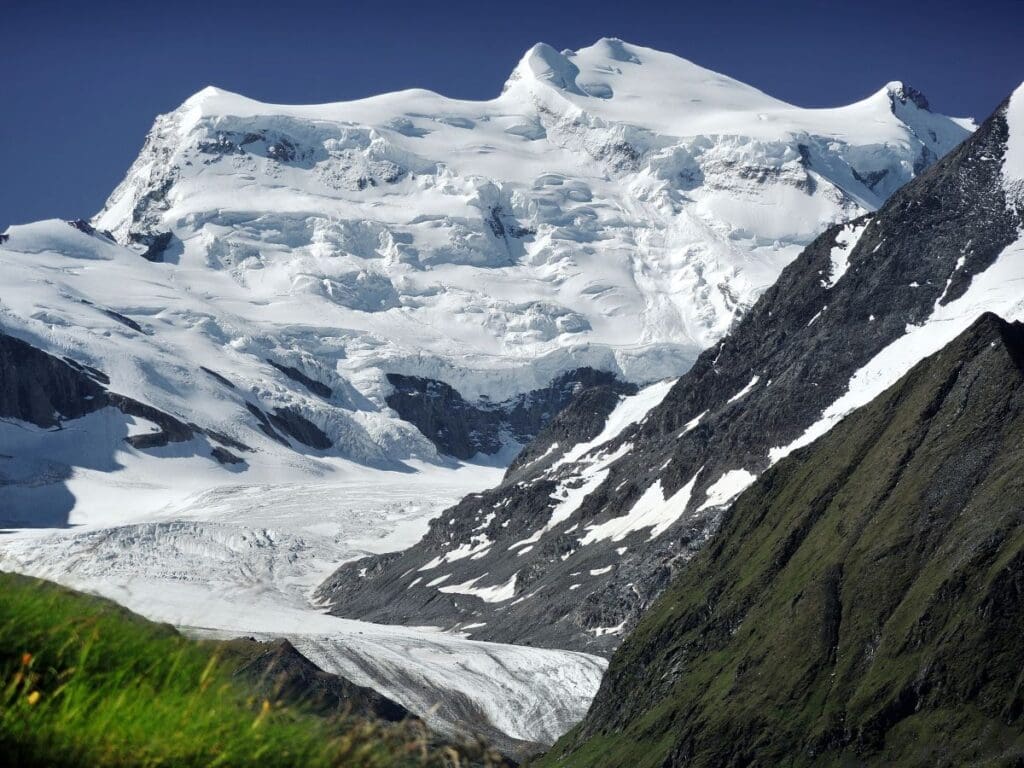In a disheartening revelation for climate researchers, a recent study conducted by the Paul Scherrer Institute (PSI), in collaboration with the University of Fribourg, Ca’ Foscari University of Venice, and the Institute of Polar Sciences of the Italian National Research Council (CNR), has uncovered the detrimental impact of glacier melting on an essential climate data archive.
The study, published in Nature Geoscience, focused on ice cores drilled in 2018 and 2020 from the Corbassière glacier at Grand Combin in the canton of Valais as part of the Ice Memory initiative. Comparing the two sets of ice cores revealed that global warming has rendered the Corbassière glacier unsuitable as a reliable climate archive.

Glaciers have long been considered invaluable for climate research, preserving climatic conditions and atmospheric compositions of past ages in their ice layers. Much like tree rings and ocean sediments, glaciers serve as a climate archive for scientific investigations.
The analysis of the 2018 ice core, drilled up to 14 meters in depth, exhibited expected fluctuations in particle-bound trace substances, such as ammonium, nitrate, and sulfate. However, the 2020 ice core, drilled up to 18 meters under the leadership of PSI researcher Theo Jenk, showed a significant deviation. The concentration of trace substances in the deeper layers became flatter, indicating that the glacier melting between 2018 and 2020 had washed away crucial climate data.
Margit Schwikowski, head of the Laboratory for Environmental Chemistry at PSI, explained, “Apparently, the water there did not freeze again, concentrating the trace substances, but instead it drained off and literally washed them away,” likening the situation to a vandalized library where crucial information is lost and irretrievable.
The researchers correlated the observed glacier melting with meteorological data from 2018 through 2020. Despite warm conditions on the glacier, the researchers found no singular trigger for the accelerated melting, suggesting that a cumulative effect of many warm years in the recent past had surpassed a critical threshold.
The unexpected dynamics of glacier melting at Grand Combin underscore the urgency of understanding and addressing the impact of climate change on high alpine glaciers. Schwikowski noted: “For a long time, it has been clear that the glacier tongues are retreating. But we would not have thought that the areas feeding high alpine glaciers would also be so severely affected.”
The findings have broader implications for the Ice Memory initiative, which aims to create a global climate archive by collecting ice cores from 20 endangered glaciers around the world over the next 20 years. The Grand Combin ice core was intended to be part of this collection, but the study’s results confirm that time is running out to preserve crucial climate data from rapidly disappearing glaciers.
Schwikowski, who is actively involved in the Ice Memory Foundation, expressed concerns about the future success of the initiative. The race against time becomes more precarious with setbacks like those experienced at Grand Combin, making the goal of preserving these natural climate archives uncertain. As glaciers continue to melt more dynamically than anticipated, the urgency for climate action and preservation of invaluable environmental data becomes increasingly evident.
Journal Reference:
Huber, C.J., Eichler, A., Mattea, E. et al., ‘High-altitude glacier archives lost due to climate change-related melting’, Nature Geoscience 17, 110–113 (2024). DOI: 10.1038/s41561-023-01366-1
Article Source:
Press Release/Material by Paul Scherrer Institute (PSI)
Featured image credit: Zacharie Grossen




